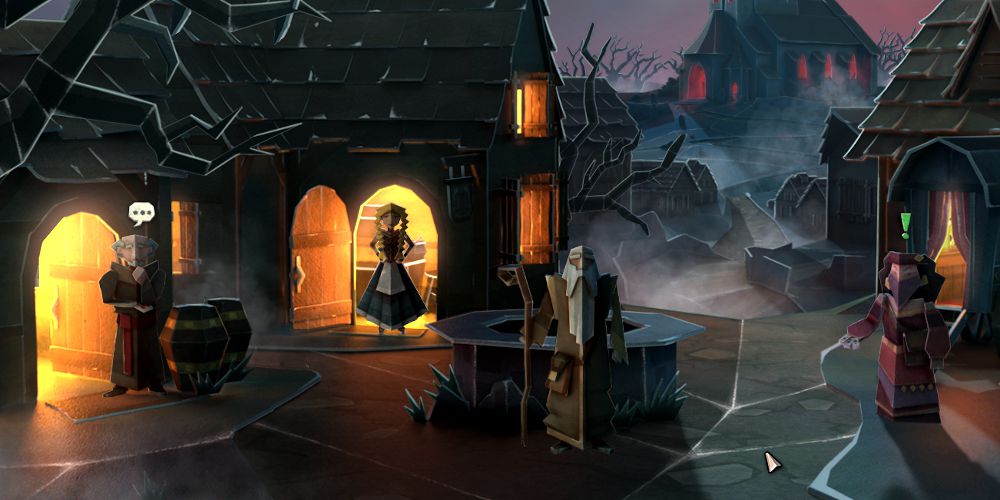Book of Demons is a great example of why I love indie games so much. It's not a perfect game by any stretch, and it may not be as vast or as deep as top-tier AAA games...
...but it does something different. Indie games have the freedom to explore mechanics, mish-mash features however they want, and experiment with game design.
And that's what I like about Book of Demons. The individual parts are nothing new, but the combination of everything feels fresh and unique. It drew me in right away, and not many games—indie or otherwise—do that for me these days.
The Premise
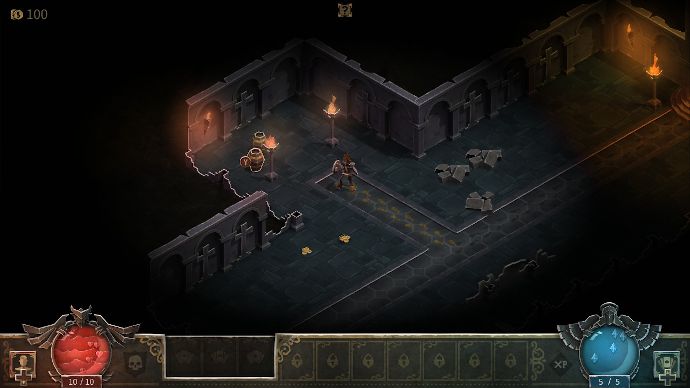
Book of Demons is like a super-streamlined version of Diablo or Path of Exile. At heart, it bleeds all the elements of an action-heavy hack-and-slash dungeon-crawling adventure.
As you delve deeper towards hell, you encounter increasingly more hellish creatures. But you can always return to the surface village for recovery, crafting, and lore-centric conversations.
That's pretty much it. Like I said, streamlined.
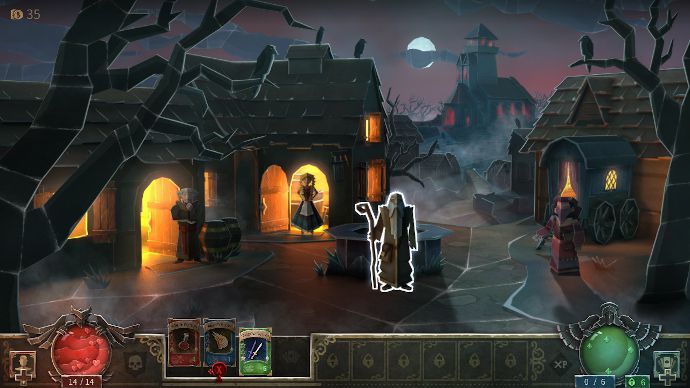
The beauty of the game lies in how things have been streamlined, which includes everything from combat mechanics to character progression to equipment and skills and more.
The Good
Book of Demons throws away the usual item and skill systems that are so core to RPGs and replaces both with a single cards system. Cards are both equipment and abilities.
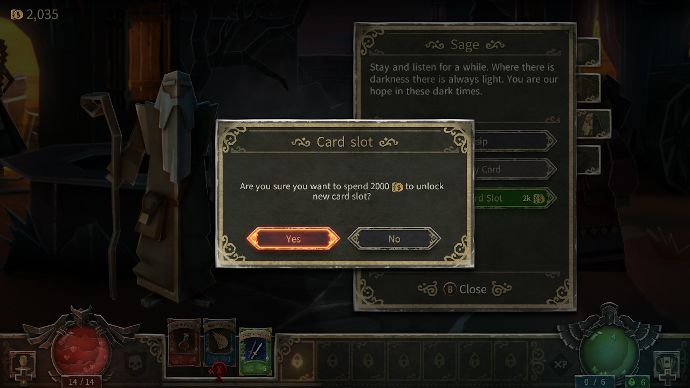
Your character starts with 3 card slots that can equip any cards, but you can unlock more card slots using gold that you find on your dungeon crawls. Each slot costs exponentially more.
Cards can be item cards, such as Healing Potion which has a finite number of uses and must be recharged at the village.
Cards can also be spell cards, which grant extra active abilities but cost mana to cast. Pretty straightforward.
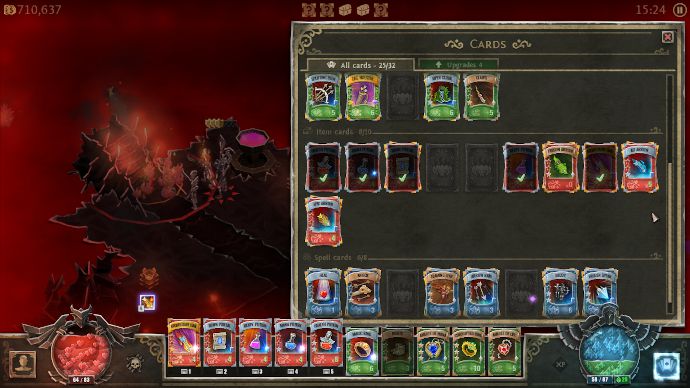
And there are artifact cards, which provide passive bonuses but reduce your total mana pool when equipped. A smart incentive for warriors and rogues to increase their mana pools!
Cards can also be upgraded using gold to be more powerful (and subsequently cost more of your mana pool.
You can see how all of Book of Demons boils down to card management. And I like it! Quite elegant, I must say.
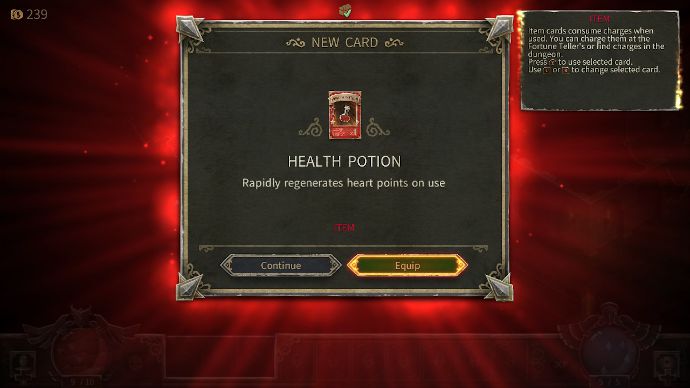
The system is cleverly designed to open up more possibilities as you discover more cards and unlock more card slots and upgrade your card levels, all while forcing you to smartly balance health growth against mana growth...
...which brings me to character progression.
In Book of Demons, your character only has two stats: health and mana. As you slay monsters, you'll gain XP and level up. When you level up, you can choose to increase your health OR your mana by 1. How's that for streamlined?
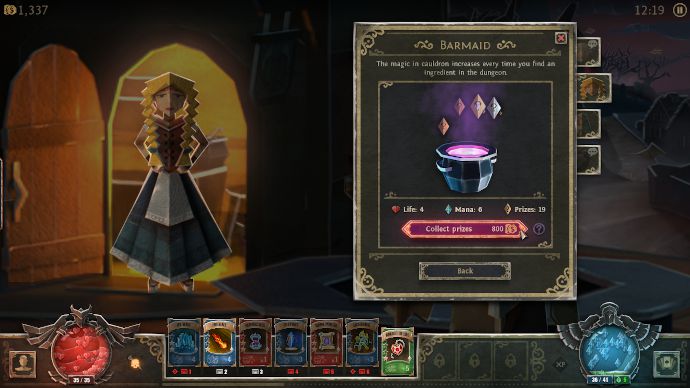
But there's another layer to it: the stat you didn't pick gets added to your character's Cauldron back at the village. You'll also find Cauldron ingredients while clearing dungeons.
When you return to the village, you can redeem your Cauldron for those unpicked stats plus extra rewards. The more stuff you have in the Cauldron, the better the rewards you get—but when you die, the contents of your Cauldron are lost.
It's an ingenious design that lets you control how much death hurts you. Do you want to leave it all in the Cauldron and risk losing it? Or are you confident that you'll return alive?
On easier modes, only the ingredients you found in dungeons are lost when you die while your unpicked stats remain.
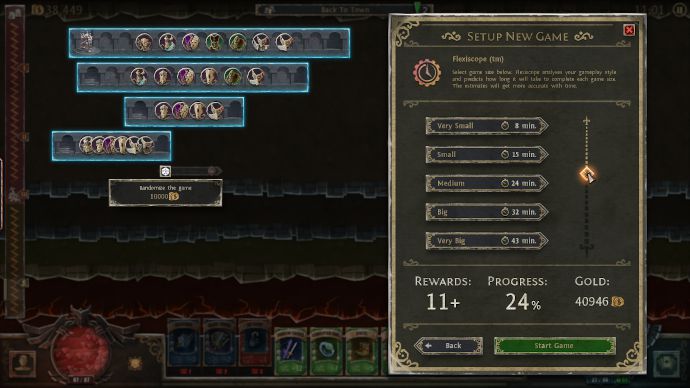
I'm a fan of the game's Flexiscope system as well.
When you start a session of Book of Demons, you can choose how long you'll be playing. The game will adjust the number of dungeons, the size of dungeons, and the total value of dungeon rewards accordingly.
Adjustments are made based on an analysis of how you've played the game thus far. So whether you only have 10 minutes or 45 minutes to commit, Book of Demons will scale things so that you have a satisfying session.
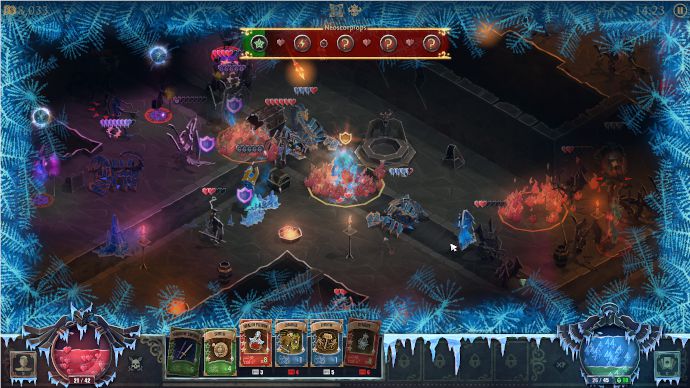
And this review wouldn't be complete without praising the wonderful art style and polished animations. While the dungeons are isometric 3D, the characters, monsters, items, and cards are all flat in the style of paper cutouts.
This isn't the first time 2D-on-3D has been done—Ragnarok Online comes to mind—but the execution is great and it gives Book of Demons a unique flavor that sets it apart.
The Bad
My biggest gripe with Book of Demons is that the combat starts to get repetitive after an hour-ish. (I played on the Nintendo Switch so this criticism may not hold for PC players.)
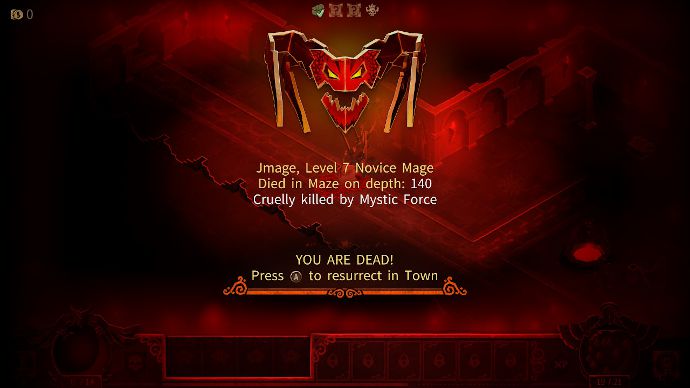
Despite the various cards and monsters, combat comes down to button-spamming your attack. And while there are some combat mechanics that require a modicum of thought, even those come down to button-spamming (or button-holding).
Character progression is equally shallow.
As mentioned before, you can only grow in two stats: health and mana. There are no skill trees, stat points, or other forms of character growth that pave the way for deeper strategy.
And there are only three classes: Warrior, Rogue, and Mage. Each one has certain perks that encourage different playstyles, but the gameplay doesn't feel much different between them.
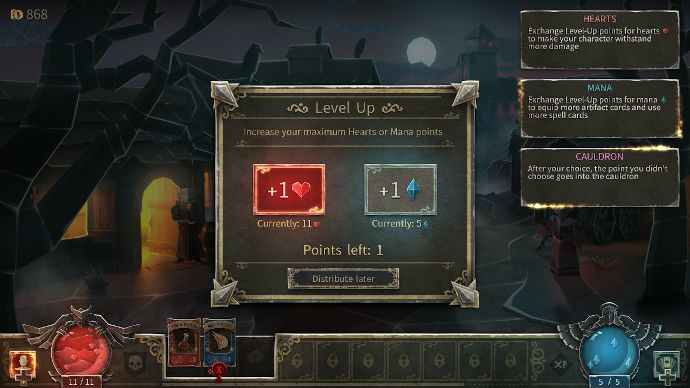
This is the big drawback to such a streamlined game design. Yeah, it's easy to pick up and fun for a while, but there isn't enough depth for sustained interest.
For hardcore action-RPG fans who are expecting something in line with Diablo or Path of Exile, you'll be sorely disappointed.
All of this could possibly be salvaged by a deep story, vast lore, or compelling conflict. Unfortunately, there's none of that. Book of Demons has a one-sentence plot: plumb the depths of the Cathedral and destroy the awakened evil.
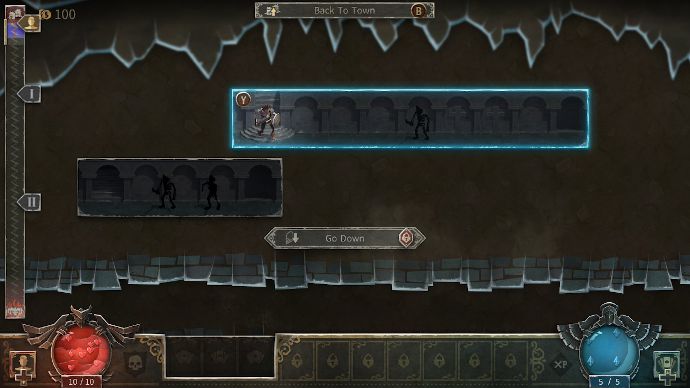
The Verdict
Book of Demons is a lightweight hack-and-slash dungeon crawler that promises nothing more than quick, simple fun.
It plays around with some interesting twists on established tropes, resulting in an experience that feels fresh even if it doesn't have much depth or extended replayability.
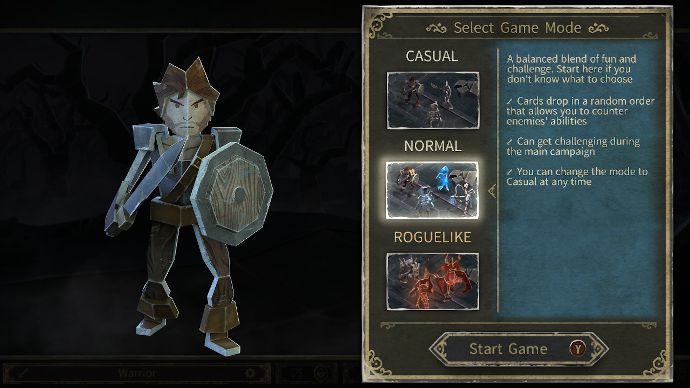
It's excellent as a filler game between bigger games. I find myself loading it up for 10-15 minute sessions, which seems to be the sweet spot for this game. That's long enough to be satisfying without wearing out its welcome.
If you can spot it on sale, it's a worthy buy. Dungeon crawl enthusiasts may like it more than I do, in which case you might buy it at full retail. It's a solid game, for sure.
Book of Demons
Book of DemonsThe Good
- The card system (replacing equipment and skills) is streamlined, interesting, and well-designed
- The push-your-luck cauldron system is cleverly designed for risk versus reward
- The Flexiscope system adjusts dungeon length and rewards according to how long you want your game session to be
- Lovely paper-cutout art style and polished animations
The Bad
- Gameplay and narrative depth are shallow, won't appeal to hardcore action-RPG fans
- Repetitive combat mechanics that feel samey across all three classes
